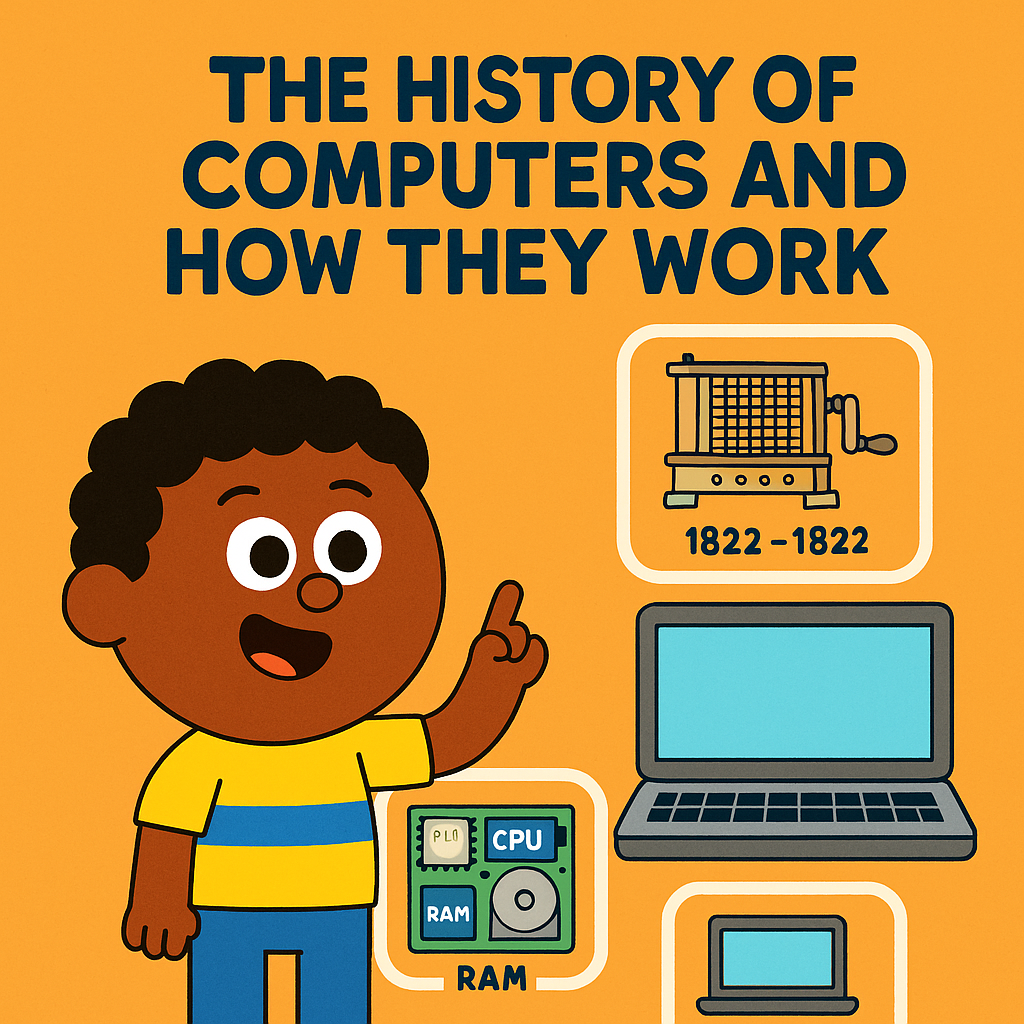The History of Computers and How They Work
From Big Machines to Tiny Tablets!

A Long Time Ago…
Did you know the first “computers” were people? A long time ago, people who did hard math were called computers! But as time went on, clever inventors built machines to help with these tricky jobs.
In 1822, a man named Charles Babbage had an idea to make a machine that could do math all by itself. He called it the Difference Engine—and it was one of the first ideas for a computer!
The First Real Computers
The very first electronic computers were HUGE. They were as big as a room and needed lots of electricity! One famous early computer was called ENIAC, built in 1945. It could solve problems much faster than a person could—but it couldn’t play games or show videos like computers today.
From Big Boxes to Laptops
As technology got better, computers became smaller, faster, and more helpful. In the 1970s, companies like Apple and IBM started making home computers. These let people write, draw, and play games right from their desk!
Now, we have laptops, tablets, and even phones that are tiny computers you can carry anywhere.
So, How Do Computers Work?
Computers are smart machines—but they need instructions to know what to do. These instructions are called programs or software.
Here’s what’s inside a computer:
- CPU (Central Processing Unit) – This is the brain of the computer. It does the thinking and follows instructions.
- RAM (Memory) – This helps the computer remember things while it’s working.
- Hard Drive or Storage – This is where the computer saves things, like pictures, videos, and games.
- Screen and Keyboard – These help you see and type things.
Everything inside the computer works together to help you search the internet, watch videos, or write stories!
💡 Fun Facts!
- The first computer mouse was made of wood!
- Early computers used punch cards to follow instructions.
- Modern computers can do millions of calculations in one second!
- Even some toys and cars have tiny computers inside!
Why Computers Matter
Computers help us do homework, create art, play games, and even talk to friends far away. Scientists use computers to solve big problems, like finding medicine or exploring space.
Who knows—you might grow up to build the next amazing computer!
Now you know where computers came from and how they work. From huge machines to tiny tablets, computers are part of our everyday life—and they’re still getting better every day!
Keep learning, Tiny Champion—you might just be the next computer inventor!
Thank you for visiting TinyChampions.com!
Before you go, if you’re enjoying the content we share, why not join our newsletter? By signing up, you’ll stay updated on all the latest articles, activities, and products we offer. We’d love to have you as part of our Tiny Champions community!


